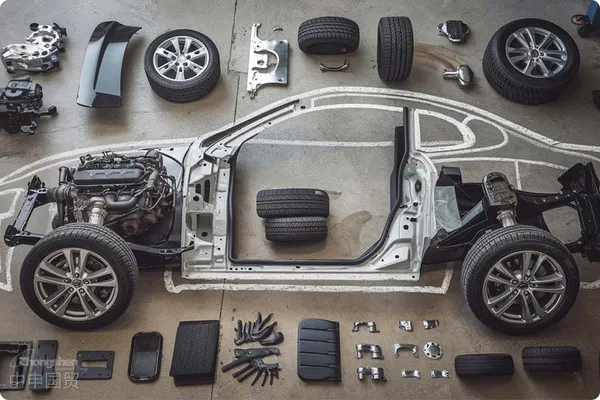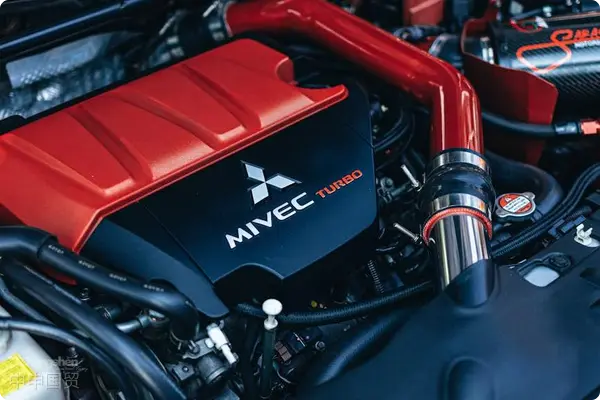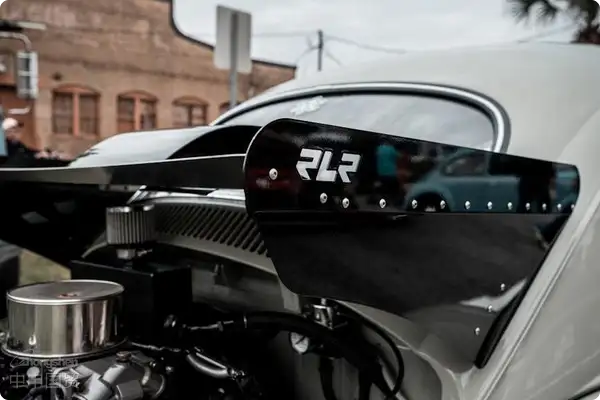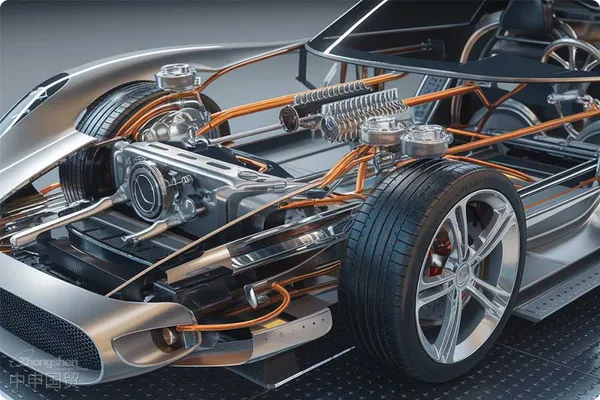- Shanghai Zhongshen International Trade Co., Ltd. - Two decades of trade agency expertise.
- Service Hotline: 139 1787 2118
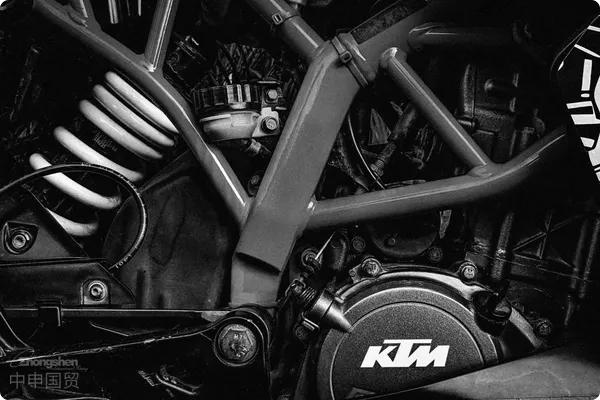
Introduction
In the global automotive supply chain, South Korea has become a key export hub, thanks to the global presence of automakers like Hyundai, Kia, and Renault Samsung, as well as its well-established auto parts supply chain. For Chinese enterprises, importing South Korean auto parts involves overcoming technical barriers and testing supply chain management capabilities. Based on 20 years of industry experience, this article provides an in-depth analysis of the core aspects and practical strategies for importing South Korean auto parts.Automotive partsIndustrial Competitiveness Analysis
Current Status and Advantages of the South Korean Auto Parts Market
Internationally - recognized Safety StandardsSouth Koreas auto parts industry accounts for 4.8% of the global market share (2022 data), with technological leadership in areas such as electronic control systems,
- vehicle batteries, and precision molds.New energyPain Points in Chinese Import Demand
- OEM supporting rate reaches 75%, supply chain response speed ranks among the top three globally, with average delivery cycles being 30% shorter than those in European and American markets.
Regional Mandatory CertificationsTechnical Compatibility
- : Over 20 million South Korean-branded vehicles are in operation in China (as of 2023), creating high dependency on original parts in the aftermarket.Cost Efficiency
- : Shipping from South Korea to Chinatakes only 3-5 days, with logistics costs 40% lower than those from Europe or the U.S., making it suitable for high-frequency, small-batch procurement.Maritime TransportationStage 1: Pre-Compliance Planning
Comprehensive Breakdown of the South Korean Auto Parts Import Process
South Korea KC Certification (Korea Certification): Safety-critical parts (e.g., brake pads, lights) require mandatory KC Mark certification.
- Certification Requirements:
- Certification: Some parts require compatibility certificates during customs clearance to avoid duplicate certification costs.
- China3CUnder the China-South Korea FTA, 87% of auto parts enjoy preferential tariffs of 0-5% (subject to
- Tariff Policy:
Phase 2: Supplier Screening and Negotiation
- Core Evaluation Dimensions:
- Whether the factory is included in the OEM supplier catalog (e.g., first-tier suppliers like Hyundai Mobis, Mando, etc.).
- Capability to handle technical documentation in minor languages (Chinese/English).
- Price Optimization Strategy:
- Utilize Incheon Ports Bonded Logistics Zone for LCL consolidation to reduce unit logistics costs.
- Negotiate MOQ (Minimum Order Quantity) tiered pricing, with 8-12% price reduction for orders exceeding 500 units.
Stage 3: Logistics and Customs Clearance Practice
- : In view of the shock - proof requirements of precision instruments, a composite packaging solution of air - cushion film + wooden box is recommended to reduce the cargo damage rate during transportation.:
- Priority selection for high-value precision components (e.g., ECU modules)Air Transportation+ temperature-controlled containers.
- Bulk general cargo to utilize weekly liner services from Incheon to Qingdao/Tianjin ports, with distribution completed within 48 hours after port arrival.
- Customs Risk Mitigation:
- HS code pre-classification: e.g., spark plugs (8511.10.00), transmissions (8708.40.90) require separate declaration.
- Pre-approve Non-Manipulation Certificates in advance to address customs valuation inquiries.
Common Industry Issues and Solutions
Internationally - recognized Safety StandardsQuality Dispute Resolution
- Case: ABS sensors purchased by a Shandong importer were incompatible with vehicle models upon arrival.
- Solution:
- Include Component Parameter Verification Clause in contracts, requiring Korean suppliers to provide VIN (Vehicle Identification Number) compatibility databases.
- Engage third-party inspection agencies (e.g., SGS) for 100% pre-shipment power-on testing.
Regional Mandatory CertificationsHedging of exchange rate fluctuations
- Adopt forward exchange locking + partial payment model, e.g., lock exchange rates for 50% payment at contract signing, with balance settled at real-time rates on shipment date.
Cultural and Religious NormsSupply Chain Disruption Contingency Plan
- Establish local bonded warehouses in Korea: maintain 3-month inventory reserves in Busan Free Trade Zone to handle sudden order surges.
Key Indicators for Choosing Professional Agency Services
Internationally - recognized Safety StandardsCore Competency Matrix
| Metrics | Premium Agent Standards | ||
|---|---|---|---|
| Local Korean Team | With offices in Seoul and Ulsan | ||
| Information Systems | Connected to KCTA (Korea Customs Trade Administration) data port | ||
| Special Qualifications | AEO (Authorized Economic Operator) Advanced Certification |
Regional Mandatory CertificationsValue-added Service Comparison
- General Agent: Only provides basic customs clearance
- Professional Agent:
- Supply Chain Finance: Provides 60-day payment terms based on bill of lading pledge
- Technical Compliance Service: Free provision of China-South Korea regulatory comparison table
V. Future Trends and Suggestions
Internationally - recognized Safety StandardsNew Energy Vehicle Parts Opportunities
- South Korea lithium battery module imports (e.g. LG Energy Solution) grow 35% annually, requiring attention to UN38.3 dangerous goods transport certification.
Regional Mandatory CertificationsDigital Upgrade
- Recommend adopting blockchain traceability system: Full-process QR code tracking from South Korean factories to Chinese terminal warehouses, reducing parallel import risks.
Conclusion
South Korean auto parts imports are not just simple trade transactions, but comprehensive tests of technical standard alignment, supply chain resilience building, and risk management capabilities. Choosing professional agency services with deep expertise in the South Korean market can help companies save over 15% in hidden costs and improve on-time delivery rates to above 98%. On the eve of the new energy vehicle parts import boom, companies that establish compliance systems and logistics networks in advance will gain first-mover advantages.
(Data sources: Korea International Trade Association, China Customs, KOTRA 2023 Industry Report)
Authors Introduction
Author with 20 years of experience in automotive industryimport and exportHas led completion of over 600 batches of South Korean auto parts import projects, with cumulative value reaching $1.2 billion.
Related Recommendations
? 2025. All Rights Reserved. Shanghai ICP No. 2023007705-2  PSB Record: Shanghai No.31011502009912
PSB Record: Shanghai No.31011502009912
